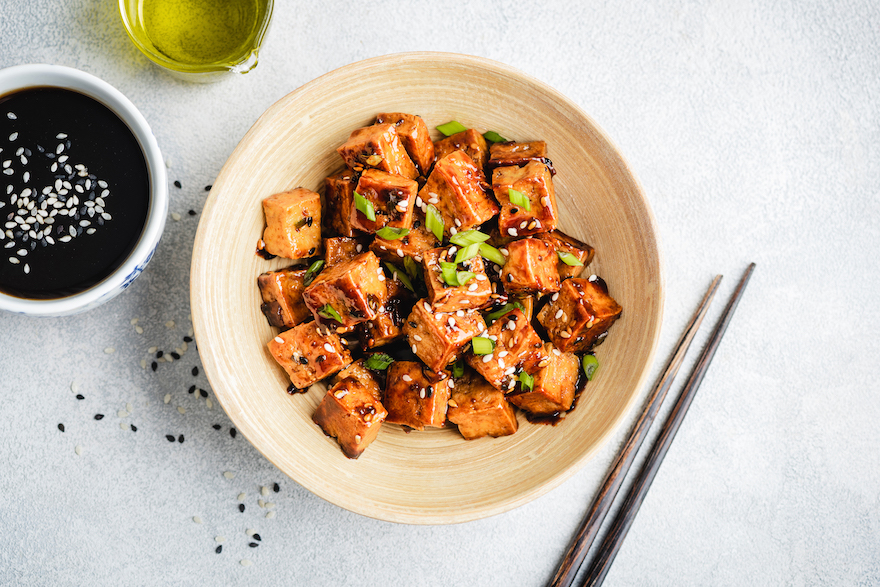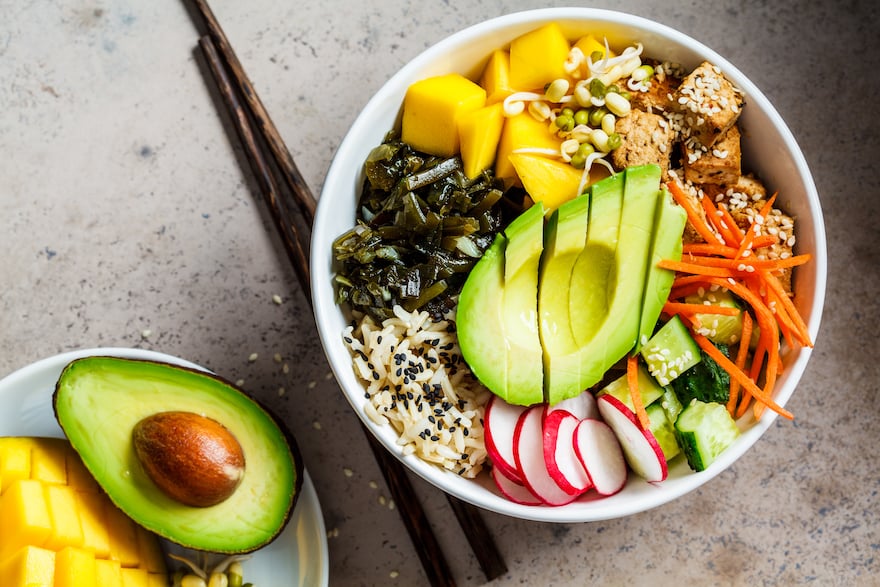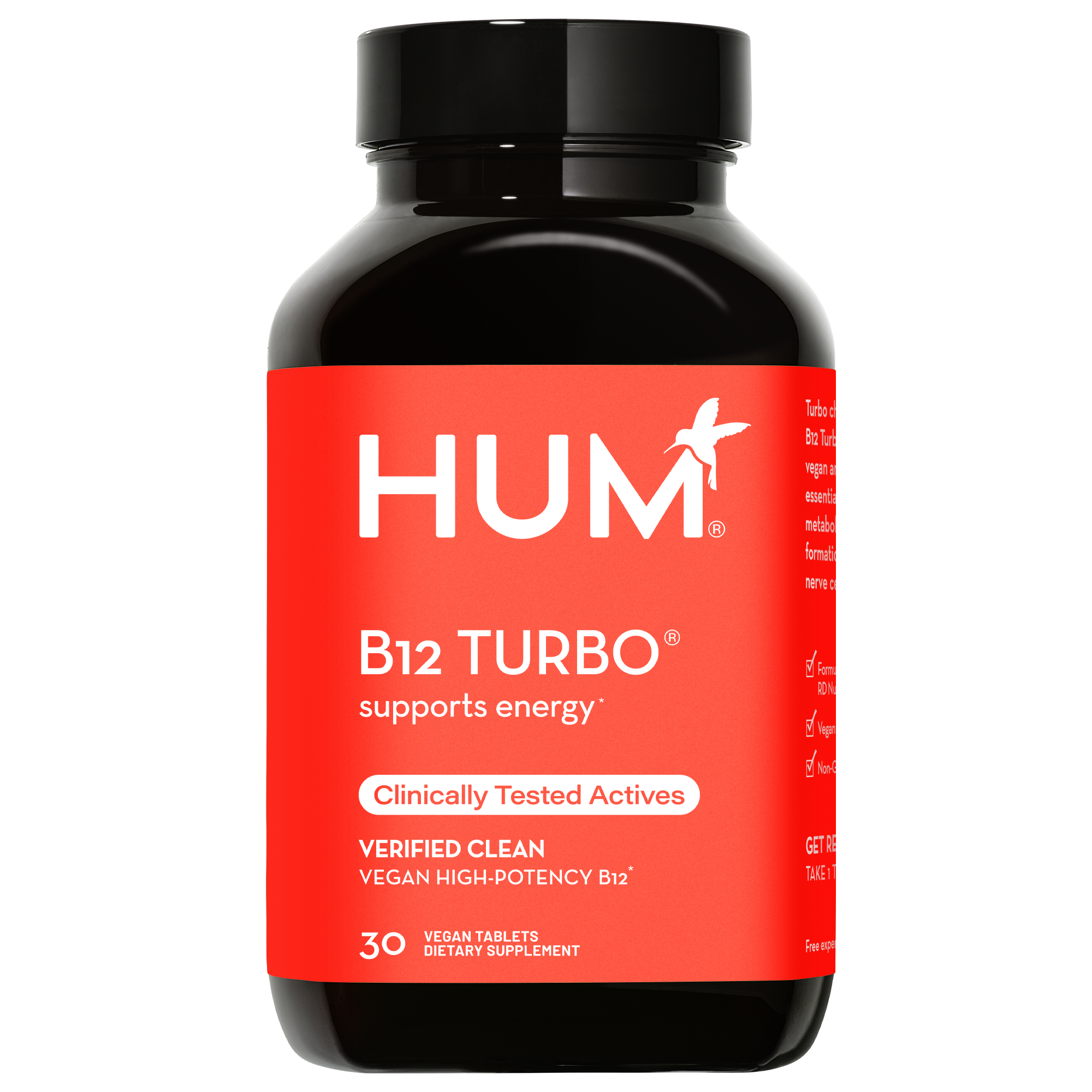I’m an RD, and Here’s Why Everyone Should Be Eating More Tofu
Tofu may sound like crunchy, granola food for hippies, but this plant-based protein packs a serious punch. Read on to learn why everyone should be eating more tofu—even meat-eaters.
If there’s one thing I’ve learned in my four years of being a vegan, it’s this: There are two types of people—tofu lovers and tofu haters. You can count me in the first group, but I’ve been asked time and time again by skeptics, “Is tofu good for you?” Tofu haters tend to have a few qualms with the plant-based protein. Either they avoid it due to its unique texture, or they have specific health concerns. “Tofu gets a bad rep because it’s made from soy, which is a highly demonized food in the nutrition world,” explains Amanda Holtzer, MS, RD, dietitian at Culina Health. Turns out, many of the myths about this food aren’t true. We spoke to RDs to learn the truth about tofu and why more people should be incorporating this food into their diets. Read on to see what they had to say.
What Is Tofu?

Tofu is a protein source made from soybeans. “Dried soybeans are soaked in water, pulverized, and boiled,” Holtzer says. “That mixture is then separated into soy milk and pulp. Salt coagulants are then added to the soy milk to separate the curds from the whey protein.”
Depending on the production method, tofu can be extra-soft, soft, firm, or extra-firm. While the consistency doesn’t change its nutritional value, it can affect the taste in dishes. Silken tofu, for example, can make your smoothies or desserts creamy, while extra-firm tofu can be baked into crispy tofu bites for salads.
Is Tofu Good For You?
Tofu gets the stamp of approval from registered dietitians as an excellent source of plant-based protein for vegans, vegetarians, and meat-eaters. “Unlike most plant-based proteins, soy is actually a complete protein, meaning it contains all nine essential amino acids we need,” Holtzer says. “A half cup of cooked soybeans has about 14 grams of protein.” Tofu has a variety of essential vitamins and minerals, such as calcium, manganese, copper, selenium, and vitamin A.
Check out a few more health benefits that make tofu good for you:
Tofu Benefits
- It can lower your risk of heart disease. Researchers found that people who regularly ate tofu and other foods containing isoflavones had a lower risk of developing heart disease.
- It could help prevent cognitive decline. A recent study found that eating more soy could lower your risk of developing dementia, which in turn can help you live longer.
- It can lower your cholesterol. One study found that swapping out your meat for tofu can lower your cholesterol.
- It’s friendly for beginners to plant-based eating. Because of its versatility and bland taste, tofu can be made into just about anything—from a creamy post-workout shake to a crispy protein source on your salads. Plus, it’s easy to cook (you don’t have to worry about it being undercooked) and takes little time to heat up.
- It works in tons of recipes. Just like meat-based protein staples like chicken breasts, tofu is extremely versatile. “Its bland flavor makes it easy to work with—you can add spice, sweetness, or a savory twist,” says Gaby Vaca-Flores, RDN, CLE, education specialist at HUM.
- Tofu is a great source of fiber. A half-cup of tofu contains .4 grams of dietary fiber. “Remember: Women want to aim for 21 to 25 grams of fiber per day, and men should aim for 30 to 38 grams per day,” Holtzer says.
- Tofu is a significant source of calcium. A half-cup of tofu contains about 434 mg of calcium. “In total, we want to aim for about 1,000 mg of calcium per day,” Holtzer says.
- Tofu is a great source of folic acid. Tofu has about 27mcg folic acid per half-cup serving. This is about 14 percent of the recommended daily amount for adults.
- Tofu contains iron. One-half cup of tofu has about 6.6 mg of iron, which is above 40 percent of the daily recommended amount.
- Tofu may activate estrogen receptors in the body. “This is because tofu contains isoflavones, a compound that functions as a phytoestrogen,” Vaca-Flores says. Phytoestrogens boast certain health benefits such as lowered risk of osteoporosis, heart disease, breast cancer, and menopausal symptoms. However, there is conflicting research about how else they impact the body, and more long-term research is needed on the subject.
Tofu’s Controversial Past

The confusion over whether tofu is healthy or not stems from research that has been dispelled. “There’s a misconception that eating soy foods can increase the risk for thyroid issues and certain cancers,” Vaca-Flores says. “Fortunately, the European Food Safety Authority reports that soy and soy isoflavones like those found in tofu are safe to consume without risk for serious health issues.”
But what are these isoflavones? “Isoflavones are a class of phytoestrogens (think: compounds that behave like the hormone estrogen), and they can bind to estrogen receptors in the body and alter their functions,” Holtzer explains. “Here’s the thing: Human studies that have focused on foods that naturally contain soy—such as tofu, edamame, tempeh, and miso—have found little correlation between soy intake and cancer. They did not analyze the effects of highly processed soy products, which contain much higher amounts of soy-protein isolates.” In fact, soybeans contain several compounds that have shown to exhibit anticarcinogenic activity, including phytosterols, phytates, saponins, and various phenolic acids.
Basically, you want to stick with minimally-processed sources of soy—like tofu. That’s because these sources will include lower amounts of isoflavones, Holtzer says. Some other sources include:
- Edamame
- Tempeh
- Miso
- Soymilk
- Soy nuts
And the highly-processed soy-based foods you want to limit include:
- Plant-based processed meat substitutes
- Protein bars
- Some cereals and granola
Another commonly-held misconception? Consuming soy products can increase estrogen levels and decrease testosterone levels in males. “No correlational evidence has been derived to support that soy consumption will lower testosterone levels in men,” Holtzer says. In fact, a 2021 meta-analysis found that soy and soy isoflavones do not have negative effects on male hormone balance. No effects were seen regardless of how long soy was consumed or how much soy was consumed.
Who Shouldn’t Eat Tofu?
Despite all of the health benefits tofu offers, Vaca-Flores says certain populations might benefit from monitoring their soy intake. “This includes people who are already at risk for breast cancer, uterine cancer, and those with poor thyroid function,” she says. “It’s worth noting that there are very few studies on the long-term effects of soy consumption, so if you have concerns, it’s best to consult with your doctor.”
How Much Tofu Should You Have?
So, is there a limit to how much tofu you should bake, air fry, or blend up? Not really, Vaca-Flores says. “From what science has found, it’s perfectly safe to consume tofu on a daily basis (except for those populations mentioned above),” she says. “As with any food, it’s best to practice moderation.” Still, if you’re looking for a more concrete guideline, Holtzer has you covered. “The FDA recommends that consuming about 25 grams of soy protein per day will have beneficial outcomes, including lowering cholesterol levels.”
If you’re concerned about your soy intake or your diet, talk to your doctor or a registered dietitian to ensure you’re eating the best foods for your needs. And if you’re transitioning to a plant-based diet, make sure you supplement your diet with a vitamin B12 supplement, like HUM Nutrition’s B12 Turbo.









